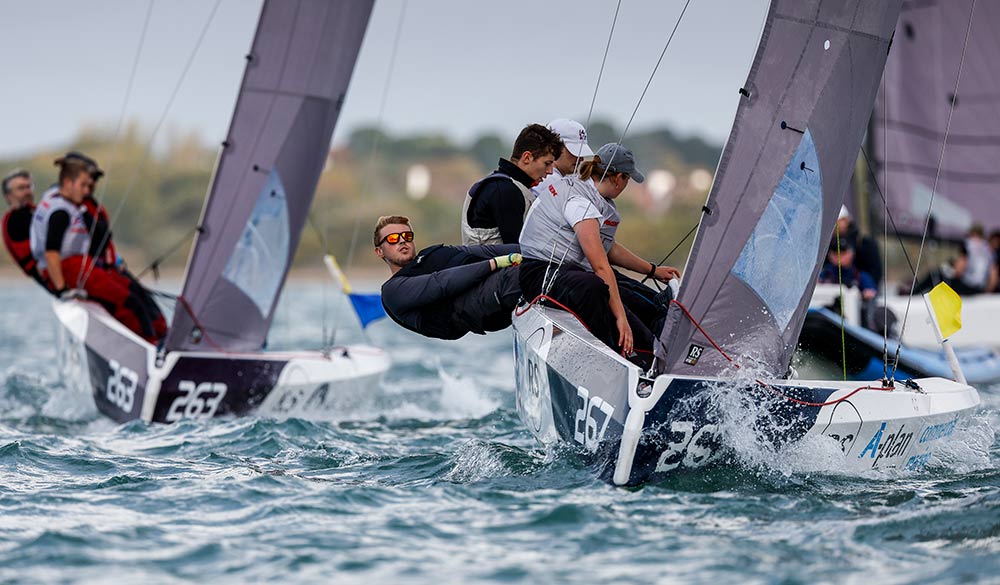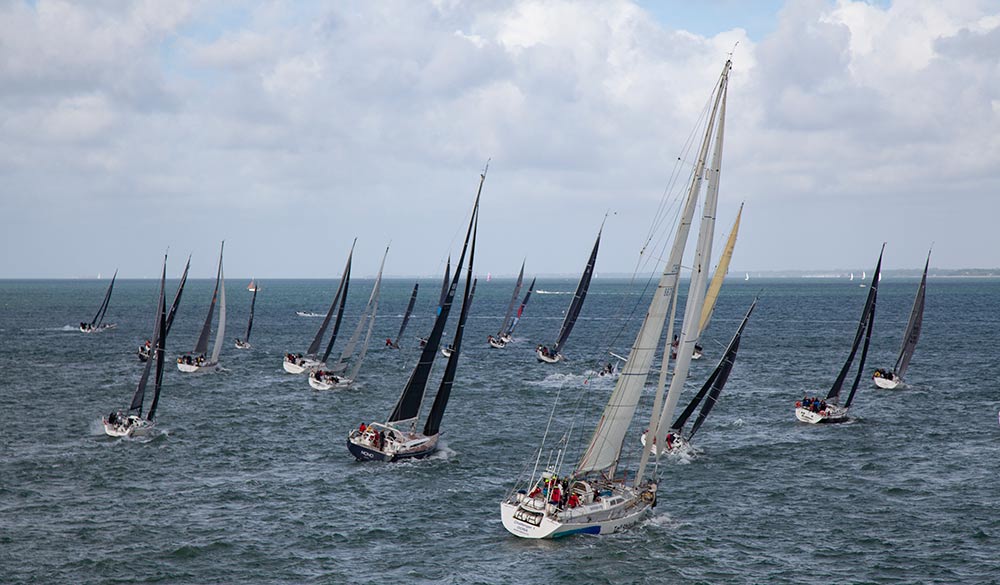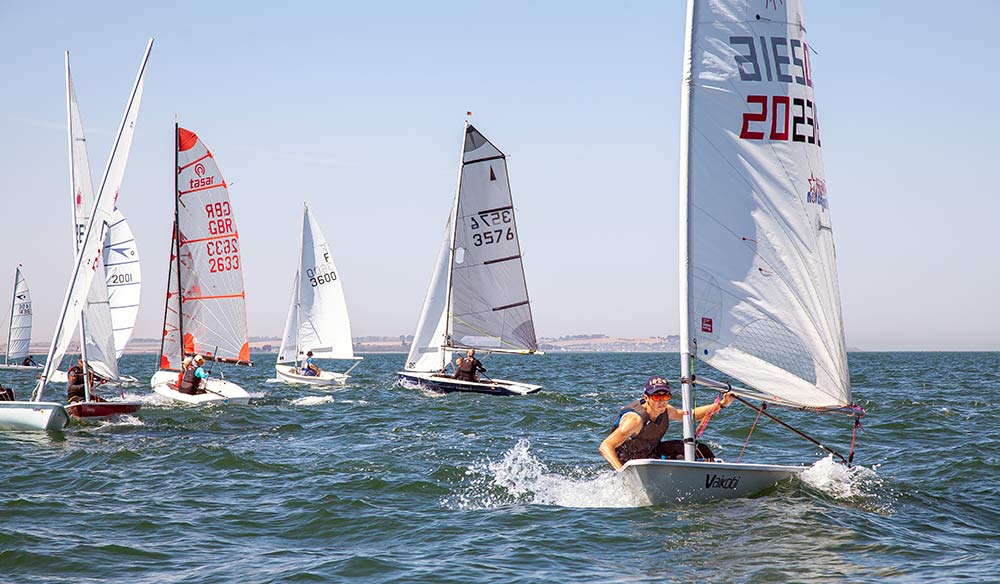Tactics for winning on the water
A sport with infinite variables brings infinite decisions to make. Mark Rushall shares some top tactical tips for distilling the decision-making and bringing clarity to your racing confusion.

Handicap fleets, offset beats, starboard-hand roundings, fishing boats, weed…
Racing anywhere, brings its own set of unique challenges and obstacles to negotiate. It can be so easy to get distracted finding your way around those obstacles that you miss the big opportunities to improve around the race course.
As a sailor, coach, British Sailing Team Strategist, sailing journalist and author, Mark Rushall is a man of many hats.
But when it comes to the race course, there are just three hats which focus his mind, and in his RYA Tactics book he introduces the ‘three hats’ model that drives decision-making on the water.
Here, he explains how this thinking can cut through the complexities of a club race environment and help you focus on your best performance.

Setting priorities
If you tried to make every single decision on the race course, ticking all the boxes of infinite choices, you would get to the right answer but probably three or four days later!
My principle is to try and cut it down so that, at any point, it’s absolutely clear what the biggest priorities are, and which of three things – three hats – is the biggest influence on my decision-making:
- Is it all about decisions driven by shifts?
- Is the most important thing to be trying to sail towards a bit of water that’s going to give me an advantage, be that through tide or wind or something else?
- Is that all too complicated and is it just about where the next mark is and where are the other boats, i.e. positioning?
Being clear which of those three hats you’ve got on will then make those complicated decisions a lot simpler.
There are several other models in RYA Tactics that can help you work out what the priority is at any time on the course and make those decisions easier. Even if you don’t use the ‘three hats’, then it’s really important to spend time figuring out what your own mental model is – what is the system you use for solving the Rubik’s Cube? If you just do it at random, you’ll never solve it!

Mixed fleets and courses
Often when people talk about tactics they’re assuming that all boats are the same size, speed and characteristics. Definitely these days in club racing, it’s not like that and there’s a multitude of classes and courses in play.
You could have asymmetric boats, symmetric boats and single handers all on the same course, and the perfect route for each of them is completely different, which means they’re going to continually be getting in each others’ way.
If you’re the smallest boat you need to be looking for the spaces on the race course because the smallest boats are most affected by the wind bending around the big boats.
In contrast to a fleet race, in a handicap race you often don’t know where you are relative to your rivals so it isn’t good enough just to cover the other boats or do what they do – they may not be the ones you’re ultimately racing against. You must keep pushing for the fastest route around the course. It’s easy to get drawn into a luffing match, and all the time you’re doing that, the Mirror two laps behind is gaining on you!
In these kinds of mixed fleets with so much going on it’s so easy to get drawn into dealing with what’s happening around you that you get distracted from making the right strategic decisions.
The key point, even in handicap racing, is that the principles of prioritisation remain the same – so choose your hat!
Mark Rushall is author of RYA Tactics, the go-to handbook for all sailors and coaches interested in improving their performance on the racecourse.
